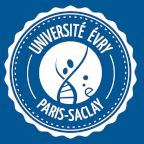Second-order propositional modal logic: Expressiveness and completeness results
Résumé
In this paper we advance the state-of-the-art on the application of second-order propositional modal logic (SOPML) in the representation of individual and group knowledge, as well as temporal and spatial reasoning. The main theoretical contributions of the paper can be summarised as follows. Firstly, we introduce the language of (multi-modal) SOPML and interpret it on a variety of different classes of Kripke frames according to the features of the accessibility relations and of the algebraic structure of the quantification domain of propositions. We provide axiomatisations for some of these classes, and show that SOPML is unaxiomatisable on the remaining classes. Secondly, we introduce novel notions of (bi)simulations and prove that they indeed preserve the interpretation of formulas in (the universal fragment of) SOPML. Then, we apply this formal machinery to study the expressiveness of Second-order Propositional Epistemic Logic (SOPEL) in representing higher-order knowledge, i.e., the knowledge agents have about other agents’ knowledge, as well as graph-theoretic notions (e.g., 3-colorability, Hamiltonian paths, etc.). The final outcome is a rich formalism to represent and reason about relevant concepts in artificial intelligence, while still having a model checking problem that is no more computationally expensive than that of the less expressive quantified boolean logic.


